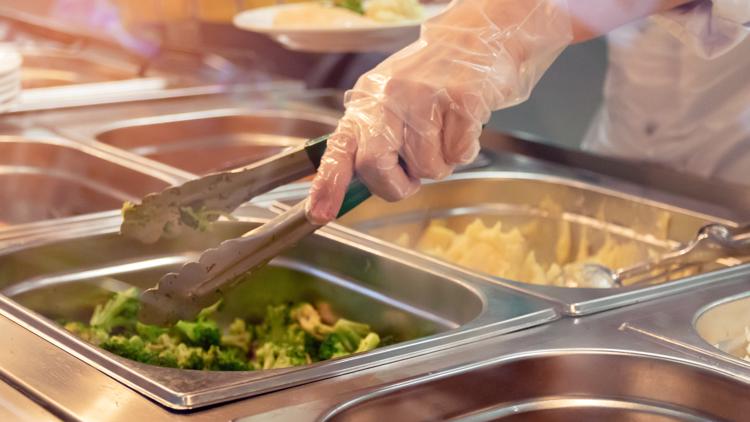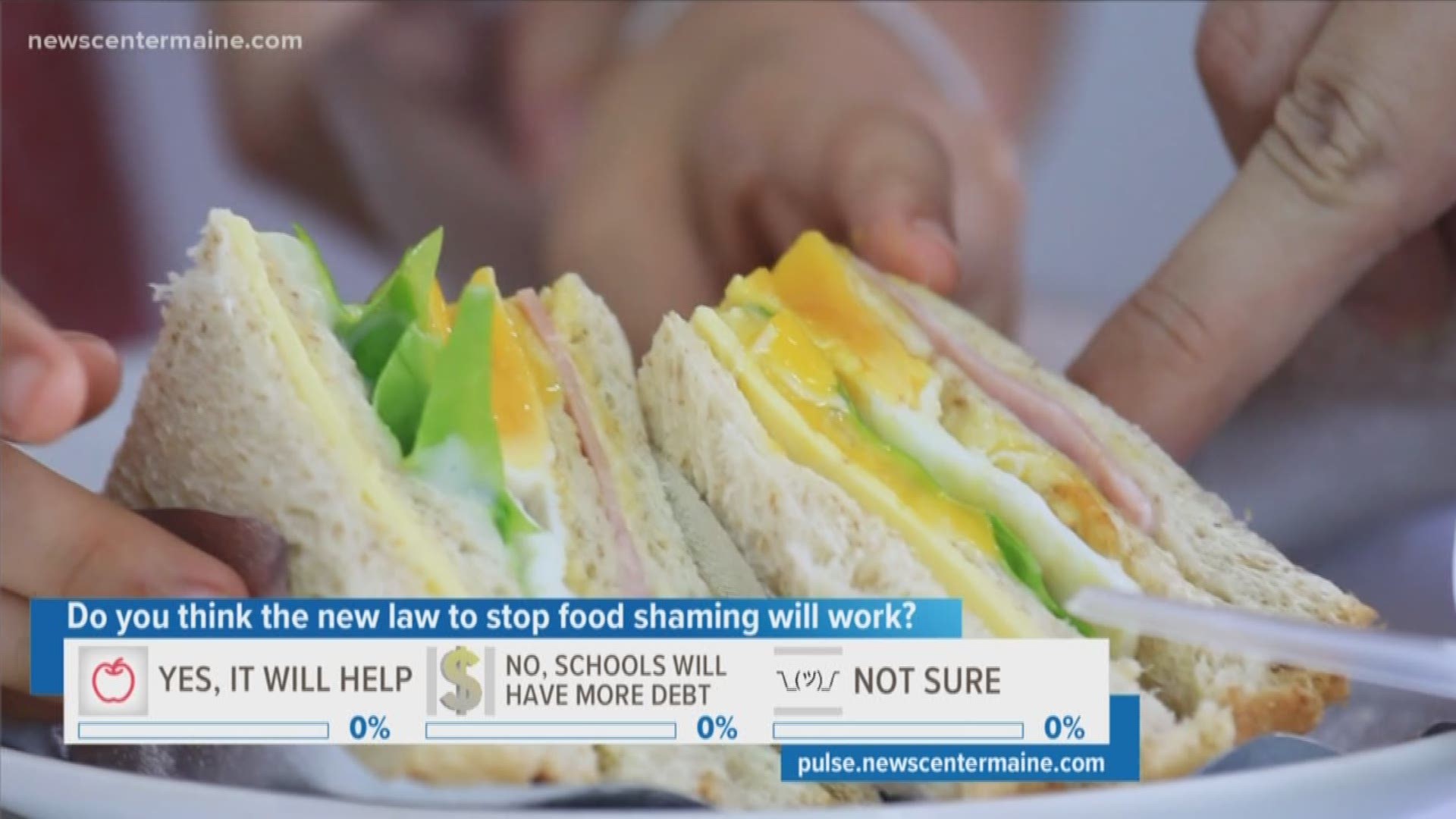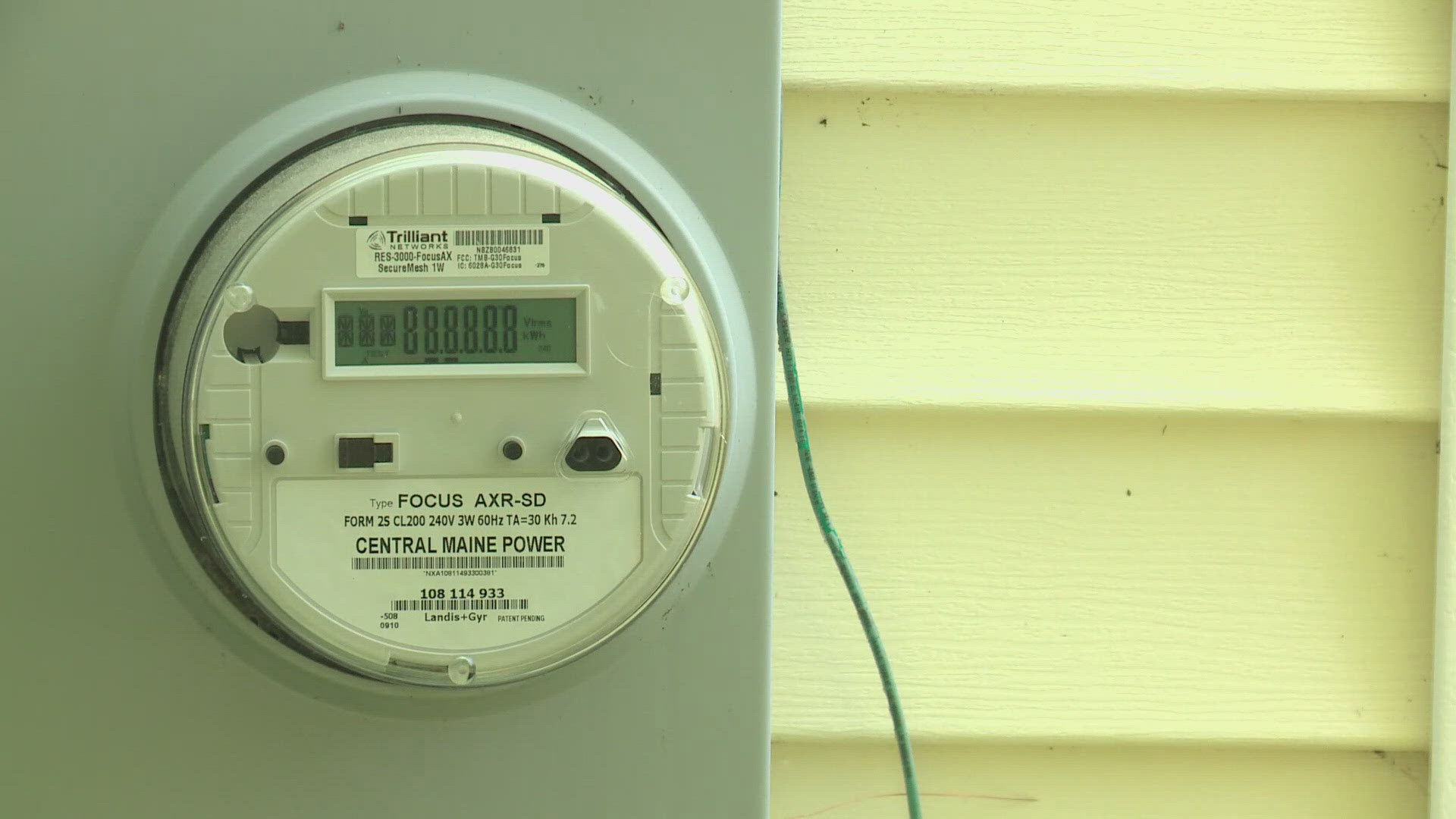WASHINGTON, D.C., USA — Senator Susan Collins' bill that bans schools in the country from singling out children who can't afford school lunch is one step closer to becoming law.
The anti-lunch shaming bill that Sen. Collins (R-ME) authored with Senator Tom Udall (D-NM) passed the U.S. Senate as part of a larger funding bill by an 84-9 vote.
Collins introduced the bill back in April. The bill would ban practices that some schools have requiring children who can't afford lunch to get their hand stamps or do extra chores because parents or guardians do not pay their school meal bill.
A similar bill already exists in Maine. Governor Janet Mills signed an anti-lunch shaming bill into law earlier this year that would prevent a school from refusing a meal as a form of disciplinary action, or openly identifying or stigmatizing a student who cannot pay for their school lunch or who owes money to the school lunch program.
According to Collins' office, the bill would require that school staff communicate outstanding unpaid school lunch fees with the parents or guardians, not with the child; and take additional steps to ensure that all students who qualify for free and reduced meals are efficiently enrolled to receive them.
“No child should feel ashamed or stigmatized because he or she cannot afford to pay for school meals. By prohibiting schools from refusing a meal as a form of disciplinary action or openly identifying a student who cannot pay or owes money, this important provision will also help to prevent hunger and allow students to focus on their studies,” said Senator Collins, a senior member of the Appropriations Committee.
According to a 2014 report by the USDA, nearly half of all school districts in the nation used some form of lunch shaming to compel parents to pay for their child’s school meals. Often, students’ hot lunches are taken away and replaced with an alternative meal, such as a cold cheese sandwich.
In other cases, children are forced to do chores in front of their peers, made to wear wristbands or handstamps declaring their inability to pay or have their lunch thrown out as their friends and classmates looked on.
Now that the bill has passed the U.S. Senate it will now go to conference to be reconciled.
Some school officials expressed concern about unpaid student lunch debt exploding under Gov. Mills' law. Some school districts in Maine say they have school lunch debt in the tens of thousands of dollars.
The passage of similar legislation in Denver, Colorado sent lunch debt soaring from $13,000 to more than $350,000 in a year after some parents stopped paying for lunches altogether.
The Maine Legislature estimates the state's mandate will have an unknown, "significant cost" statewide for public schools.




